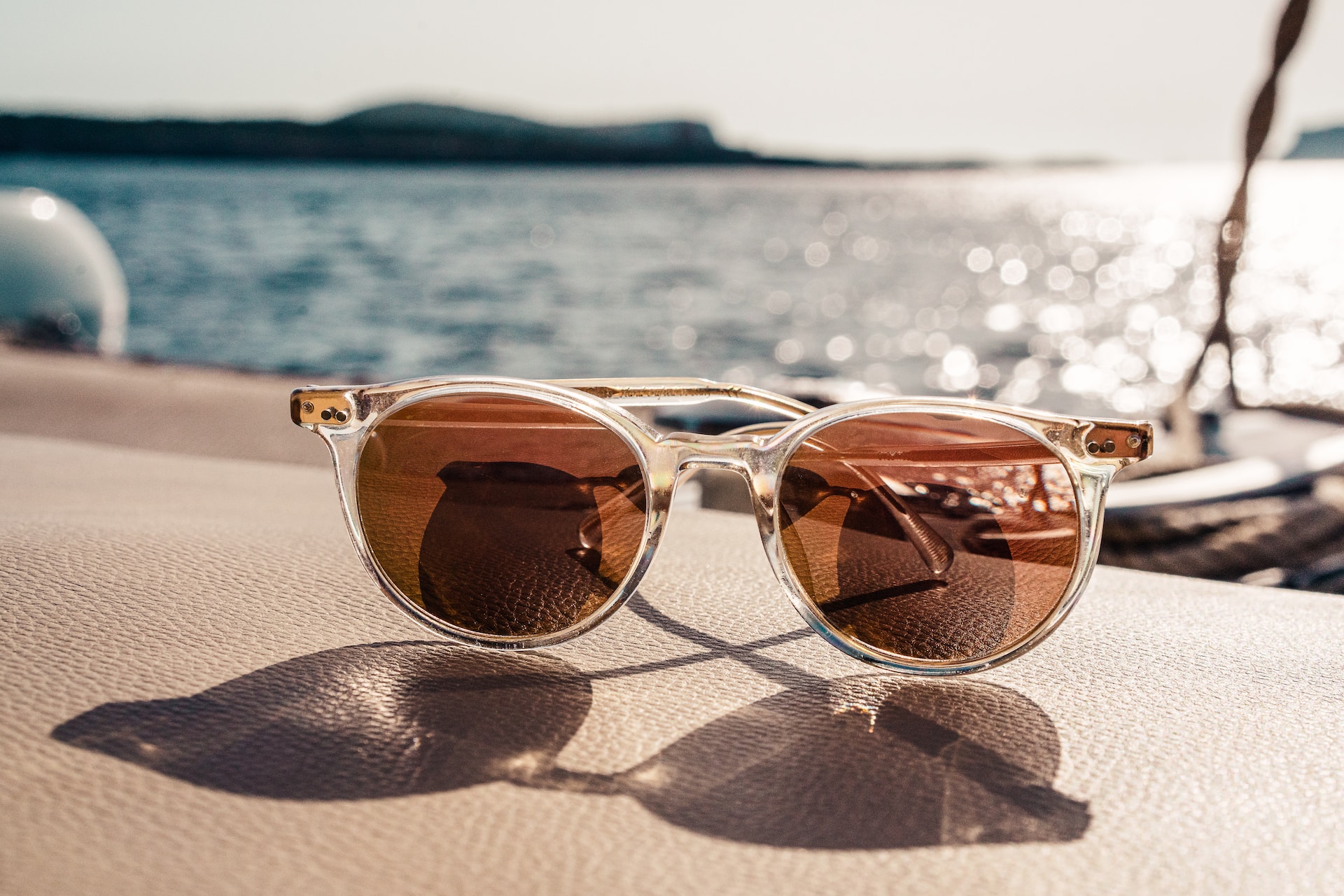Sunglasses Shopping Tips

When shopping for sunglasses, there are so many options and styles that it can be hard to choose the best ones for you. This is especially true if you need any special options or you aren’t sure what you’re looking for. It’s further complicated if you need prescription glasses. Here are some things to think about when shopping for sunglasses:
UV Protection
When buying sunglasses, make sure they provide 100% UV protection from both UVA and UVB rays. This is essential for protecting your eyes from long-term damage. If you want better UV protection both for your eyes and for the skin around your eyes consider getting larger sunglasses that will cover more area. You can usually find sunglasses with UV protection in most stores.
Polarisation
Polarised lenses can reduce glare and improve visibility, especially in bright sunlight or on reflective surfaces like water or snow. Polarised sunglasses may cost more, but for anyone who spends a lot of time outside, on a boat, driving, or in other situations where there are many reflective surfaces, the extra cost is worth it.
Lens Material
There are several materials to choose from, including glass, plastic, and polycarbonate. Glass offers the best clarity, but it’s also heavy and fragile. Polycarbonate is lightweight and shatterproof, making it a good choice for active people. Plastic lenses are cheaper but are also scratched easily. When deciding on a sunglasses material you will need to take into account your needs or the needs of the person you are shopping for, as well as the expense and how long you want the sunglasses to last. Also take into account the kinds of places you will be going with the sunglasses and the activities you will be doing while wearing them on.
Lens Color
Different lens colors can affect how well you see in certain lighting conditions. Gray lenses are a good all-around choice that can help keep colors true and avoid distortion. Brown lenses are also a good choice, and can enhance contrast in low light. Yellow lenses are good for cloudy or overcast days, while green lenses can reduce glare and eye strain. If you don’t mind color exaggeration and distortion, colored lenses can also look unique and give your style an extra flair.
Mirrored lenses also give a unique look, although they don’t usually change color perception while you’re wearing them. They can make it hard or impossible for other people to see your eyes.
Fit
The right fit is essential for comfort and performance. Look for sunglasses that fit snugly but not too tightly, and that don’t slide down your nose. Make sure that you also like the way the glasses look on your face and that they don’t look too large or small.
Frame Material
Frames can be made from a variety of materials, including plastic, metal, and acetate. Plastic frames are lightweight and durable, while metal frames are strong and long-lasting. Acetate frames are a good combination of both.
Style
Sunglasses come in a wide range of styles, from classic aviators to trendy round frames. Different face shapes can look better with different shapes and styles of glasses. Some people prefer small, trim sunglasses while others enjoy the look of large, movie- star style glasses. Choose a style that suits your face shape and personal taste.
Brand
Quality sunglasses can be expensive, but for many people they’re worth the investment. Expensive, high quality glasses are likely to last longer and be more scratch resistant than the cheaper discount store versions. Look for trusted brands with a reputation for producing high-quality, durable sunglasses. Many brands offer good quality and durability without being exorbitant. Other brands are pricier but come with the prestige and allure of designer labels.
Lens Coating
Some sunglasses come with a coating that can reduce glare, repel water, or resist scratches. These coatings can enhance performance and protect your investment.
Coatings that reduce glare are useful for people who work in bright sunlight or who find glare from lights distracting or annoying.
Scratch- resistant coatings are especially helpful for active people who spend time in the outdoors, do sports, or have active jobs. They’re also a good idea for children’s glasses.
When you’re buying sunglasses, it makes sense to spend the money on coatings that will make them more useful.
Price
Sunglasses range in price from a few dollars to several hundred dollars. While it’s tempting to go for the cheapest option, investing in a quality pair of sunglasses can save you money in the long run by protecting your eyes and lasting longer. Cheaper glasses often scratch easily and are made with cheap materials that can bend or break when they are dropped or sat on. More expensive glasses are usually made with better- quality materials that are resistant to breaking and scratching.
In addition, more expensive glasses often look better and fit better compared with cheaper discount options.
Finally, you often can’t find coating options, polarization, and UV protection in the most inexpensive sunglasses. Going with more expensive brands will allow you to find what you need and feel more satisfied with your purchase.
